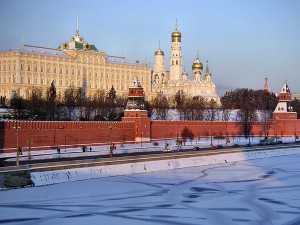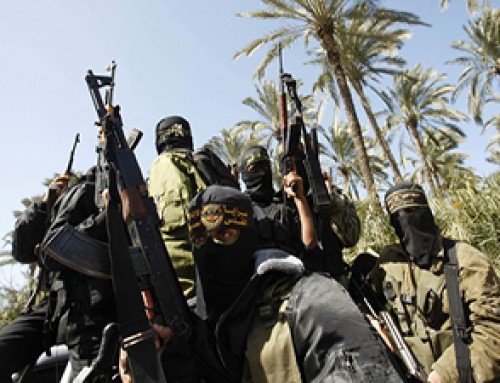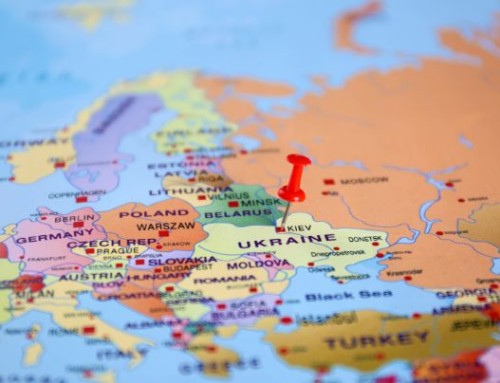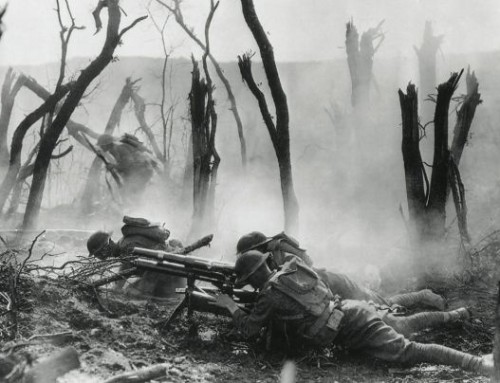 Russia is the main supplier of energy to Europe and Asia Peter. Deliveries have ups and downs, often abrupt, followed by political turmoil in the most varied. Since 2009, tensions between Moscow and Kiev escalated, the starting point is the contract for the supply of energy for the Ukraine. Due to these tensions Ukraine started negotiations with the Europeans to purchase natural gas. Ukrainian administration audacity to ask for a contract of 10 billion dollars with energy giant Shell to exploit shale gas in eastern countries was promptly punished by Moscow Gazprom sent a $ 7 billion bill, gas that Kiev did not used in 2012 and would be paid through contractual clauses. Take or pay type contract stipulates that Ukraine is obliged to buy 52 bcm annual volume can be adjusted by up to 20 percent based on a request issued six months before the start of the new year, request to be approved by both parties .
Russia is the main supplier of energy to Europe and Asia Peter. Deliveries have ups and downs, often abrupt, followed by political turmoil in the most varied. Since 2009, tensions between Moscow and Kiev escalated, the starting point is the contract for the supply of energy for the Ukraine. Due to these tensions Ukraine started negotiations with the Europeans to purchase natural gas. Ukrainian administration audacity to ask for a contract of 10 billion dollars with energy giant Shell to exploit shale gas in eastern countries was promptly punished by Moscow Gazprom sent a $ 7 billion bill, gas that Kiev did not used in 2012 and would be paid through contractual clauses. Take or pay type contract stipulates that Ukraine is obliged to buy 52 bcm annual volume can be adjusted by up to 20 percent based on a request issued six months before the start of the new year, request to be approved by both parties .
Moscow accuses Kiev that such an amendment was not concluded. 7 billion dollars is a huge amount to only 51 billion budget for 2013 adopted by Parliament in Kiev and the Ukrainian government will not pay. Shale gas is a solution like Ukraine and Poland. Such Shell will develop perimeter of the Iuzovske, first extract is expected for 2015 and the company Chevron will develop the area Oleske, near the border with Poland, the first extraction is expected in 2016. Geological studies have not yet been completed but it is estimated that the two fields would be between 3 and 12 trillion cubic meters of gas. U.S. Energy Information Administration estimates of shale gas reserves of 1.2 trillion cubic meters Ukraine gas in total, ie the smallest amount in Europe. Ukraine’s financial situation is not exactly rosy. This year is due loan taken by Ukraine in 2010 from the International Monetary Fund in the amount of 6.5 billion dollars and the conditions under which the IMF refused to grant Ukraine a loan of 11 billion dollars without some major concessions (such would be increasing the price of gas for households) country’s economic situation is bleak and without the need to pay astronomical bill Gazprom. Orange Revolution was not to the liking of Moscow and the government of Viktor Yushchenko with his desire to join NATO and the EU on the verge of exasperation led Moscow to become the consecutive reduction of gas rates delivered to Kiev in 2006 and early 2009. Then cuts have affected not only Ukraine. Were affected Greece, Italy and the countries of Central and Eastern Europe by far Moscow. Just arrived Ukraine to sign the take-or-pay agreement with Russia. Although management has changed prezidenţailă in Kiev, Viktor Yanukovich came to the helm, a Russian pro, gas agreement remained the bone of contention between the two countries.
In fact Russia wants economic reintegration of space at its border, that Ukraine and Moldova, while keeping Western influence outside of proximity. Disagreement on gas supply contract between the two countries is actually the older Reincarnation disputes about Ukraine’s independence from Russia. In the other part of Asia with China acquires new connotations. China’s hunger for energy is increasing pardoxal to the country’s economic downturn. As Russia prepares official visit of President Xi Jinping Russian deputy prime minister, Arkady Dvorkovich, said in Moscow that the two countries are preparing to sign an agreement that will allow the delivery of 38 billion cubic meters of natural gas per year, in China since 2015. The amount of gas is only 30% of Chinese consumption of gas. The agreement will reduce dependence on Chinese maritime transport lines in the Indian Ocean and the South China Sea. Energy remains vital to Beijing which has a well established strategy in this regard, a strategy that primarily involves economic relations with Russia and the development of their armed forces to monitor maritime transportation energy pathways on the east coast where China has built warehouses giant fuel. As a result China has invested considerable sums in modernizing its armed forces charging that military technology has a delay of 20-30 years from the United States. Thus China’s defense budget is progressing on average 12% per year reaching 2012 to 670.27 billion yuan (80.6 billion euros) second after the U.S. military budget (720 billion dollars). Increased military spending is greater than the GDP (9.2% in 2011). New party and state leadership in Beijing has taken by force new geostrategic environment requirements. The main objective of the new general secretary of the Chinese Communist Party and next president of China this March, Xi Jiping, include improving the standard of living of the population and combating corruption, Xi saying in the press conference after the last plenary session that party is facing serious challenges to be addressed quickly, and among them is corruption and bureaucracy in all areas.
Therefore given that country’s government announced new austerity measures to fight corruption by state officials, the Chinese army has introduced new rules aimed at combating costs “extravagant and wasteful”. According to Xinhua News Agency, the new head of the Communist Party of China, Xi Jinping, who is also chairman of the Central Military Commission, has approved new rules proposed by the military leadership, to promote austerity and control costs. Army must “firmly prevent unnecessary construction, foreign appetite for big things, extravagance and waste”, says the official document of the Central Military Commission. Expenses should be directed to the central goal of the military, including that of being able to fight and win a battle, Xinhua said, citing a slogan that was described by the official media as “a key objective this year.” In December 2012, the military official receptions prohibited from senior officers to serve drinks and food are expensive, under similar rules adopted for civil servants. Also according to these rules, officers have to prevent family members and their associates to accept bribes.
With economic growth of the past 30 years China has been allowed to invest in military technology required Air Force (Air J20) or Navy (nuclear-powered submarines and nuclear-powered engines for aircraft carriers). China has clear objectives in the South China Sea and the Indian Ocean caused by hunger for power. Despite these developments military capabilities of forces are geographically limited Chinese. If a conflict of Beijing’s supply lines will break more points Ryuky islands, Luzon Strait, and Malacca. 85% of petroleum products arriving by sea to China. With a potential of the maritime blockade China returned to a shore supply from Russia, Central Asia and Iran. New ground infrastructure lead to the development center of China, Beijing’s geopolitical imperative. Low labor costs in the country will need to maintain a production surplus to GDP growth of over 8% annually in order to prevent possible social unrest. Building an industrial base in central China, less industrialized area, where agriculture is the only source of income of the population, will raise your energy bill.
In the new energy strategy China began efforts to use alternative energy nuclear and shale gas in Sichuan basin. Chinese Communist Party’s legitimacy comes from robust economic growth that has assured for decades. “Socialism with Chinese characteristics” will continue to be used as economic mantra of the CCP government, with progressive reforms in the market and in terms CCP control over vital sectors of China’s economy, including banking, energy and infrastructure and the the military. Actiuală situation is calm. Tensions between China and its neighbors are becoming more frequent and lasting and based on all energy problem. The tense situation is clearly the East China Sea between China and Japan related to the acquisition / Senkaku islands nationalization last fall, which led to a series of incidents between the two countries.
Concerns over an incident between Chinese and Japanese ships gave the necessary impetus to efforts to improve ties, including a possible summit between Japanese Prime Minister Shinzo Abe and Chinese President Xi Jinping future. Prime Minister Abe tries to put up a security coalition with Australia, India and the U.S. and has proposed an increase in the defense budget of Japan, strengthen relationships with the Philippines and Vietnam, two countries that are at least suspicious of China’s pacifist position. Abe and XI have but the same internal problems – excessive nationalism but also the military population / Defence Forces / coastal patrols but also extremely high opportunity cost of an eventual conflict – no matter how small. China can not afford to enter into such a situation because the military point of view is not yet at the point in which Japanese forces meet, especially if they could join their American counterparts. Neither of the two leaders will choose the conflict than in an exceptional situation. Increasing need for energy geopolitical changes step by step decisionce ale Asiei.






Leave A Comment